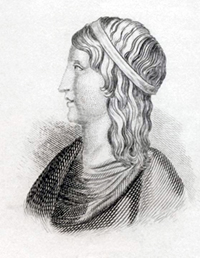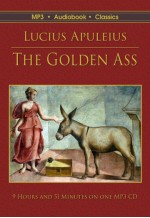Lucius Apuleius
 |
Apuleius (c. 124 – c. 170 AD), also known as Lucius Apuleius Madaurensis, was a writer, philosopher, and rhetorician best known for his bawdy picaresque novel Metamorphosis, or The Golden Ass. He was born in Madauros, a colonia or Roman outpost in Numidia on the North African coast, now Algeria. His father was a well-to-do provincial magistrate whose legacy enabled his son to study in Carthage and Athens before journeying to Rome to study Latin rhetoric. He was an initiate in several Greco-Roman religious schools, including the Dionysian Mysteries, and was a priest of Asclepius, god of medicine, and later a priest of Carthage. He traveled extensively North Africa and Asia Minor after his time in Rome. While in Alexandria he was encouraged to marry the mother of a former schoolmate, a wealthy widow. He was subsequently charged by the father-in-law of his schoolmate with seducing the widow by means of charms and magic spells, a ridiculous case that resulted in Apuleius' spirited and triumphant defense known as the Apologia, which dates from 158/159 AD and is still read today. While little is known of his life thereafter, his literary output was prolific, and his occasional public speeches were well-attended. He was in charge of gladiatorial contests and wild beast events in Carthage. Statues were erected in his honor in Carthage and elsewhere after his death, believed to have been as late as 180 or 190 AD. |
The Golden Ass
The Metamorphosis of Apuleius, which has come to be called The Golden Ass, the name given it by St. ..
$9.99

